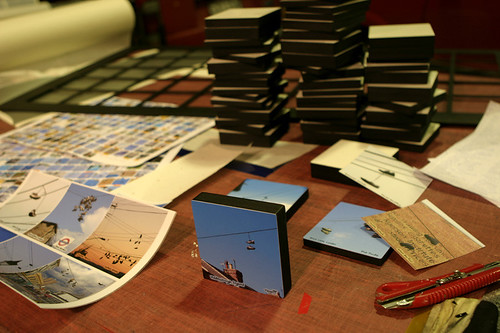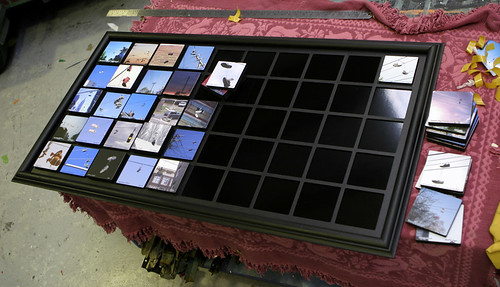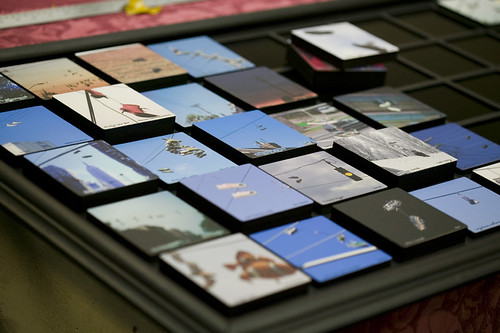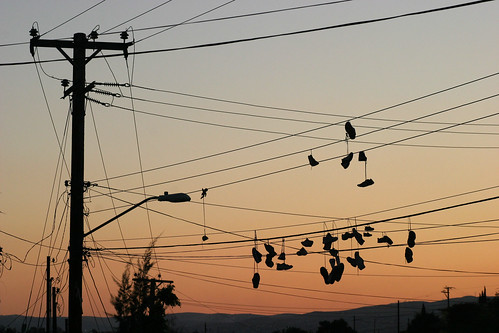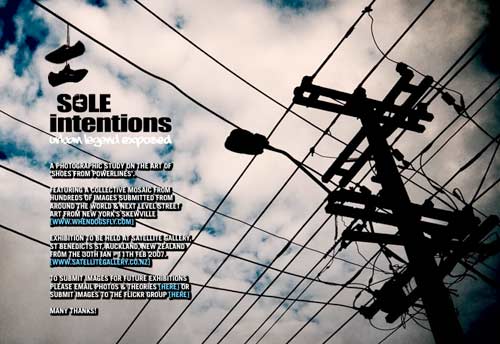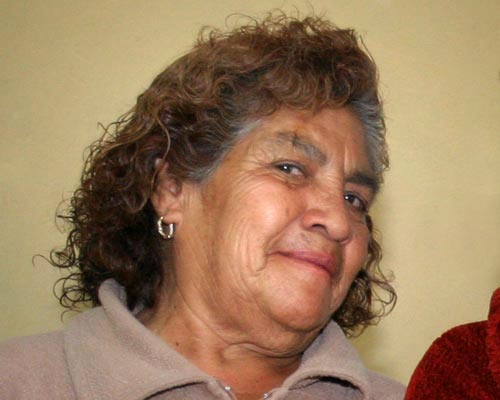During 2004/2005, I spent my mornings waiting in line at the border. The commute from Tijuana to San Diego gave me plenty of time to watch, listen and think. For several weeks, I watched a group of men working behind a shroud of old vinyl banners and recycled plastic sheets. I couldn’t see what it was, but they were building something. Every day, I’d catch a glimpse of color or a peculiar shape. On days when traffic moved quickly, I felt a little disappointed that I hadn’t been able to see more. Day by day, the anticipation grew.
Finally, it was revealed.
The structure stands around 40-feet-tall. The base holds an imprisoned hand; the top, a tile mosaic cityscape with two spires reaching upward. Four engraved Mayan hoops face north, south, east and west. A south-facing plaque reads:
ESCULTURA
“ENTRE VENTANA Y PUERTA”
DEL ARTISTA VISUAL
OSCAR ORTEGA
Sculpture “Between a Window and a Door” By Visual Artist Oscar Ortega
At the time, I was the technical director for KPBS Radio’s The Lounge, a daily talk show covering the arts in San Diego. The show’s producer, Angela Carone, and host, Dirk Sutro, were interested in Tijuana artists as well, so I made contact with Oscar Ortega. We started an email conversation, but unfortunately, there was turnover at work and I was reassigned to a different program. After not receiving Oscar’s reply to a set of questions — and with the changes at work — the story faded into that quiet place where memories go to gather dust.
Oscar Ortega has several public pieces in Tijuana, including a mural just a short distance from the sculpture. Unfortunately, he doesn’t have an online portfolio that I can find. Searching “entre ventana y puerta” returns an image of mine on Flickr as the top result (I’m curious if this blog post will take it’s spot after it gets crawled). So after two years waiting to read someone else’s review of the piece, I figure it’s about time to share my own.
He explained the title as a description of Tijuana’s physical (and perhaps psychological) situation. It’s an incredibly transited city, but has no seaport, making its coastline only a “window.” The “door” refers to the U.S. border — a door locked for many. The piece, like the city, is rich with layered symbols: the hand of Mexican labor, cars circle the base endlessly, the round indigenous blocks carved with the men’s bathroom figure, the jumbled mosaic like the residential architecture covering Tijuana’s hillsides.
Certain patterns line up at particular angles, allowing you to discover each scene as you move around it. For me, Ortega’s sculpture stands as a monument to the culture of Tijuana: a mix of indigenous and modern symbols, a city of travelers, glimpses of family struggle, international labor and commerce, and all of it trapped in a corner at the edge of the world. And I’m curious if the people who pass “between a window and a door” daily manage to see themselves in it.

